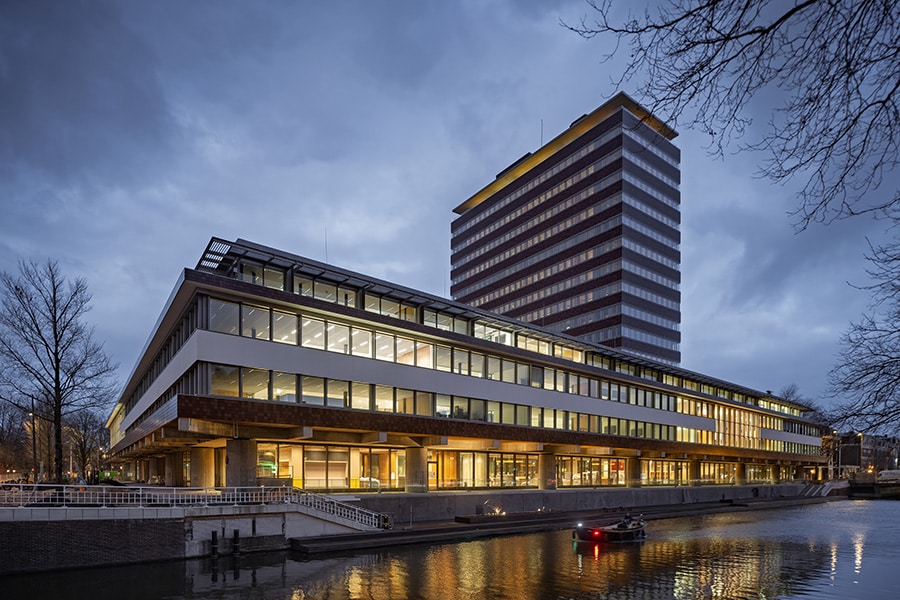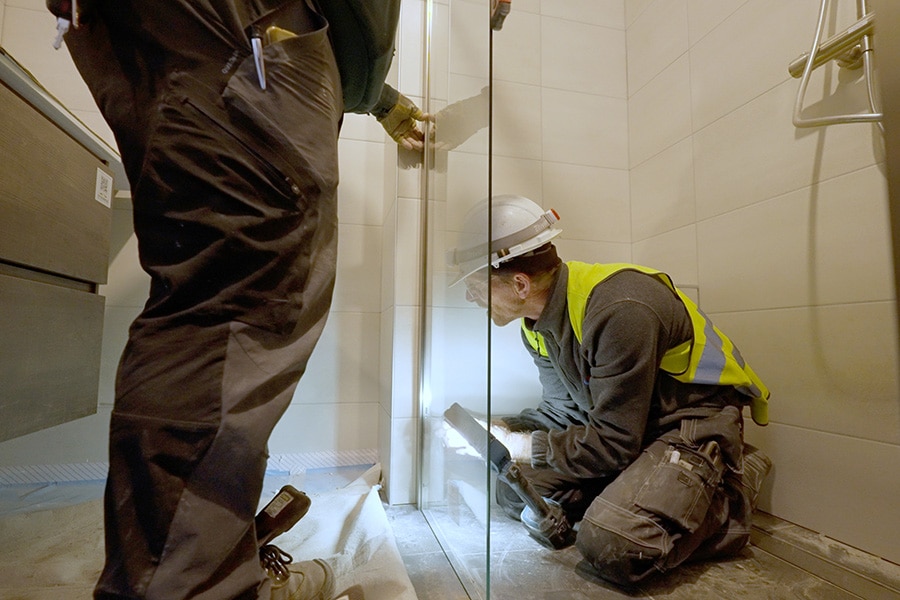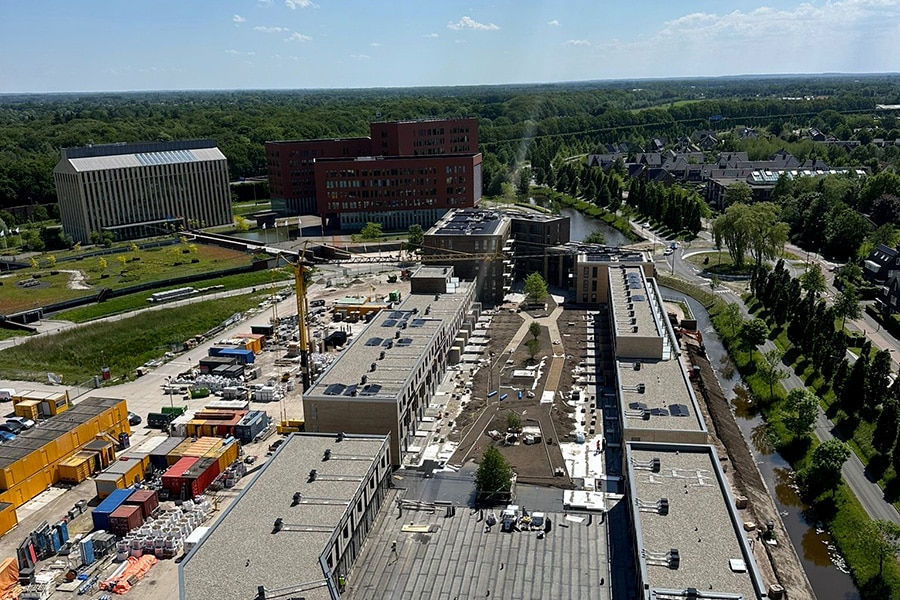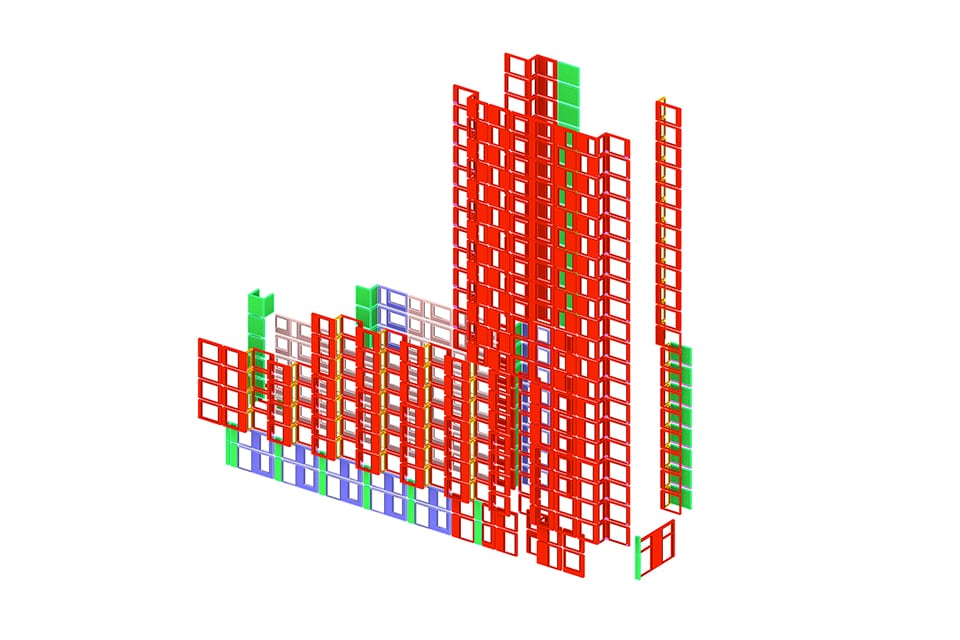
Heat pump network offers housing associations an affordable sustainability alternative
The recently published Climate Agreement contains biggest plans for making the Dutch housing market more sustainable. The ambitions are huge and barely conceivable. Starting in 2021, as many as 50,000 homes per year must be addressed; a number that will be scaled up to 200,000 homes per year in 2030. The property owned by housing corporations acts as a starter motor in this process.
Making an existing home natural gas-free is not an easy challenge. According to many housing corporations, the investment is too high and demolition is often not an option. Moreover, residents are often suspicious: can I still shower long enough? What will happen to my monthly costs? What about the inconvenience during the renovation? Not to mention: what does an all-electric home mean for me as a resident? In addition to the existing options of heat networks and air/water heat pumps, there is now an alternative: the Heat Pump Network. This solution was developed by Itho Daalderop, manufacturer of products and systems for a comfortable, healthy and energy-efficient indoor climate and sister company Klimaatgarant, market leader in the field of energy performance guarantees in new construction projects.

If one opts for Itho Daalderop's Heat Pump Network, a low-temperature mini-heat network is installed per block of 4 to 5 homes, fed by a very deep soil loop (WKO) of 225 to 300 meters.
The joys, not the burdens
"The Heat Pump Network combines the benefits of a heat grid and a water-to-water heat pump, or heat pump that harnesses energy in the ground," says Frank Doff, Developer of Transition Projects at Itho Daalderop. "Whereas a heat grid can be implemented at the neighborhood level without much construction work, the water-to-water heat pump takes an important step in natural gas-free living. This is because the energy required for the heat pump can easily be generated by solar panels. Ambitions such as Zero-in-the-Meter are thus achievable, creating an additional cash flow for housing corporations through the Energy Performance Fee. But the alternatives for housing corporations, such as a heat network or air/water heat pump, have serious disadvantages, such as rising housing costs, the need for a complete neighborhood approach, noise pollution and a possibly unstable return in winter. The Heat Pump Network combats these."
Heat pump network
If one opts for Itho Daalderop's Heat Pump Network, a low-temperature mini-heat network will be installed per block of 4 to 5 homes, fed by a very deep soil loop (WKO) of 225 to 300 meters. "Each home is then fitted with our 5th generation water-to-water heat pump, which is characterized by very high efficiency in heating and hot water preparation, with the possibility of cooling," Doff said. "A prerequisite for the Heat Pump Network is that the homes are well insulated. This can be done, depending on the type of home and year of construction, by upgrading the existing shell or installing a new facade against the existing one. In addition, balanced ventilation with WTW is a 'must' because this allows a smaller heat pump to be installed and creates a much more comfortable and healthier indoor climate."

Pictured: a recently completed installation in Oostvoorne.
The innovation makes it possible to apply soil energy affordably. "This is because the cost of the source is divided between 4 to 5 homes. At the same time, high infrastructure costs for a large collective grid are saved. The solution is flexible and scalable: an entire neighborhood can be transformed block by block, and the depth of the soil loop means that regeneration of the source is not immediately necessary. The home's delivery system also does not have to be changed immediately. When this is done, however, during renovation or at a natural mutation moment, the home can also be cooled. In this way we are responding to the trends of comfortable cool living, energy storage and 100% renewable."
Affordable solution
The Heat Pump Network offers several options in terms of financing, says Doff. "In addition to the Energy Performance Fee, housing corporations can opt for exploitation through standing charges or settle the costs for the source as service costs. Here we can relieve housing corporations from A to Z, with advice and guidance during the construction process as well as advice on financing options. Moreover, we can give clear, hard performance guarantees to the tenants: the solar panels generate more energy than the heat pump uses, otherwise we adjust the difference."
Wondering if the Heat Pump Network is also interesting to make your residential projects more sustainable? Feel free to contact f.doff@ithodaalderop.nl/010-4278530 for more information.



